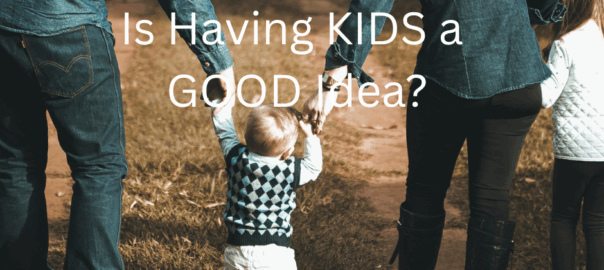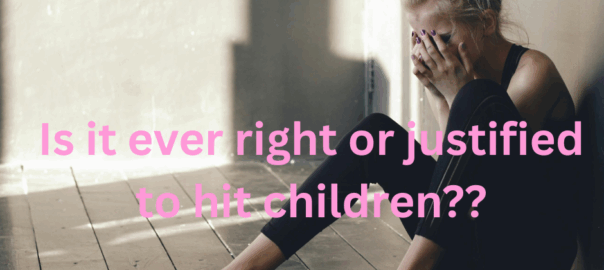How to provide parental support to fearful children?
A new survey of the perception of safe spaces for women casts a worrying fear among young women as to their safety.
The survey of women found, 31% of women avoiding taking public transport alone and 56% of women feel unsafe travelling alone, a third of women avoiding public transport.
The survey also found, 86% of women avoided going out after dark, rising in girls of colour. Fears around women’s safety being paramount in the responses.
Fears around solo travel and personal safety for women have led to behaviour changes with girls changing what they wear, where they socialise and exercise to avoid harassment.
The survey also worryingly identified young women respondents do not feel schools are safe places, 58% of school children saying they had heard toxic comments including 32% of young women seeing a member of staff subjected to sexist or misogynistic abuse.
With 1 in 10 school girls saying they did not feel safe at school. The figures rise across the board for LGBTQ+ or disabled girls with pupils intentionally missing school to avoid harassment.
These are worrying statistics that represent the fear that exists in so many young women. For parents this fear presents a parenting challenge. How to keep your children safe and give them the confidence to live their life.
How do Parents Support Fearful Children?
Parent Support Action No1- Identify the fear in your child.
My son is terrified of tsunamis. We has a real fear of tsunamis, so much so he doesn’t really like going to the sea side. We know this because when we go to the seaside he gets nervous. His fear is clearly displayed but when your child’s behaviour isn’t.
As the survey results above show children avoid their fears by avoiding the situation. The behaviour may mask the fear. As parents children not wanting to go to school is common but understanding the reasons why helps understand the fear. 1 in 10 children saying they did not feel safe at school.
Parent Support Action No2. – Having an open, shame and blame free dialogue with your child.
Parent support is often giving your children space and security to communicate without fear of embarrassment or shame. In the same way Cosychats offers, Parent support free from judgement and shame, parents need to offer their children the same safe space. Where children can communicate their feeling’s and fears openly.
Don’t dismiss your child’s fears as trivial or unrealistic.
Your child’s fears are fears for them. They may out grow them but at his moment they are real and impact full to your child.
When providing parent support one of the CosyChats motto’s is ‘No problem is too big, No question too small or trivial’. We offer that support to parents. Parents need to offer the same support and free safe space to their children. This will allow them to understand their children and understand their fears.
Parent Support Action No3. – Understanding your child’s fears allows you to understand their actions.
Your child is afraid of being bullied at school for being different. To avoid the bullying they avoid school.
Without this understanding you just see a child refusing to go to school. With the understanding you know why they don’t want to go to school and can help.
Parent Support Action No4 – Deciding how best to help a fearful child.
We helped our son by understanding his fear more. He fears tsunamis but also fears a natural disaster ending his family life. He fears being left alone and losing his family. This really helped us understand him and allowed us to help him.
Your child’s fear may justified or not. It doesn’t really matter I think. Its their fear. Its how they deal with it that matters. How you as a parent support them in dealing with their fears.
Whether that is avoiding the fear or accepting the fear and continuing.
The older I’ve got the more afraid i am of roller coasters and fairground rides. I don’t go on rides. I’m fearful and i’m OK with that. It works for me but fear can prevent you living your life.
Parenting Support – How to Support a Fearful Child
Conclusions for Parent Support.
- Create a safe space to communicate with your child
- Identify and understand your child’s fears and behaviours
- Accept not dismiss fears.
- Decide how best to help your child.
CosyChats is a Parent Support Service for Parents.
CosyChats supports personalised parent support. CosyChats offers a parenting safe space free from judgement and shame where no question is too small and not issue to big.
Why Parents Should use the CosyChats parent support service.
🛟1-2-1 Personalised Parent Support Sessions
🧷Safe Parent Support Spaces Free From Judgement and Shame
👍🏼Where No Parenting Problem Is Too Big and No Parenting Question Too Small
👩👦Parents Supporting Parents Offering Compassion and Understanding
🆘Practical Parenting Support Created by UK Parents
🧑🏼🦱Parent Mentoring from Parents with Real Lived Parenting Knowledge & Experience
💻Online Parenting Support from the comfort of your own home.
Top 10 Benefits of the CosyChats parent support service.
👍🏼Access to a wealth of Parenting Experience and Knowledge.
👍🏼A Personal Parenting Mentor for you
👍🏼Parent support via phone, Text or On-Line.
👍🏼Parent Support Groups for key development stages
👍🏼Flexible parenting support sessions.
👍🏼Online parenting support at a reasonable cost.
👍🏼Parent support sessions can be gifted to a parent who needs parental support.
👍🏼Parent to parent support group harness wide parenting experience.
👍🏼Parenting support services are booked in 10 minute slots.
👍🏼Parenting support from real parents who want to help.
Call to action. – Parents need to educate their sons.
Educating your children to improve women’s safety.
If the survey results disappointed, saddened and scared you, as they did me then do something about it. Parents lets be more proactive around women’s safety. Be proactive in discussions with your children. Be mindful of influences on your children. Counter the toxic male stereotypes and behaviours that are promoted against women. Teach our children to be respectful and value women’s safety. To understand actions and words can have a serious impact on another persons fears and self worth.
As a parent of boys and girls this is so important as we have seen the toxic impact on all our children.
Being parents isn’t easy and there are more and more traps and pitfalls to fall into. That’s why we set up CosyChats com to help support and guide parents.
CosyChats is a personalised parent support Service that can provide support to parents across a wide range of parenting issues including how to educate your children and give them the best and most effective life skills.
If you need help being a parent. Raising happy and well rounded children. We’re here for you offering practical and emotional support. Parenting knowledge and experience, all in a judgment free space.
More Parent Support From CosyChats
Does your child spend their life on-line?
Women’s safety fears can lead children and teenagers to spend more time on-line. A teenagers life can increasing be on-line and not real world. Should we as parents be worried about this? Read our latest blog ‘When On-line Becomes Your Teenagers Life‘
Are you fearful of your daughter going out but also staying in too much. Modern parenting can be confusing and contradictory. We’re parents to and were here to provide Parenting help and Support.
Parents do you struggle to balance work and life?
You need to Read This blog ‘How to Balance Work and Life’ and still have time for your family.
“Never get so busy making a living that you forget to make a life.”
– Dolly Parton, Country Singer
Parents Of Teenagers on Cosychats.
Thank you for reading this blog (Parental Support For Fearful Children).
CosyChats is a personalised parent support Service that can provide support to parents across a wide range of parenting issues including how to connect with your children and spend quality time together. How to leave your parenting guilt at the door and build a solid and happy relationship with your children.


 1-2-1 Personalised Parent Support
1-2-1 Personalised Parent Support
 Safe Spaces Free From Judgement and Shame
Safe Spaces Free From Judgement and Shame Where No Problem Is Too Big and No Question To Small
Where No Problem Is Too Big and No Question To Small Offering Compassion and Understanding
Offering Compassion and Understanding From Real Parents Who Know How Difficult Being a Parent Can Be
From Real Parents Who Know How Difficult Being a Parent Can Be Real Lived Knowledge & Experience
Real Lived Knowledge & Experience Virtual Sessions Where You Are In Control
Virtual Sessions Where You Are In Control